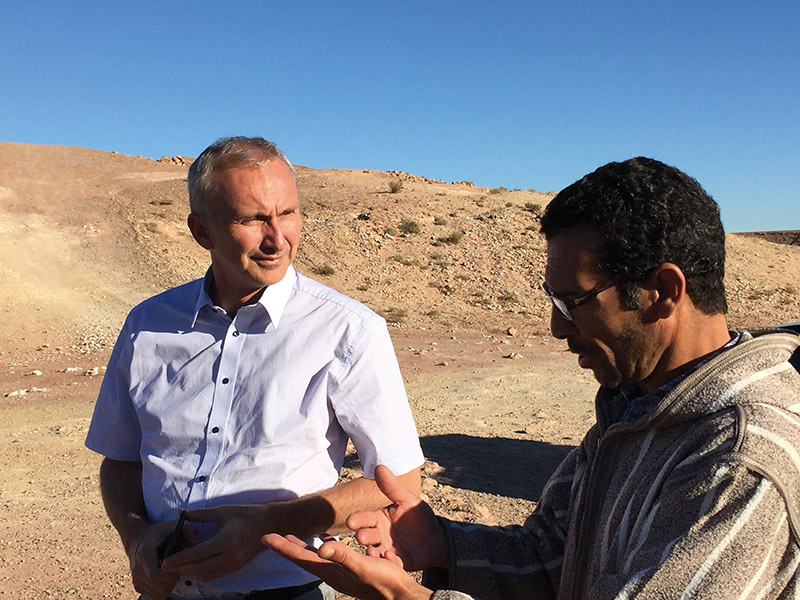State revenue
More taxes, more development

“Taxation plays a critical role in state-building”, the authors emphasise. It helps to establish a social contract between citizens and the state. The reason is that citizens who pay taxes want to know what the money is used for, and they are eager to control the public expenditures. In turn, governments feel particularly obliged to invest money they have taken away from citizens in public goods and public welfare, according to Monkam and Moore.
Some African governments shy away from taxing real-estate property and favor a value-added tax (VAT) on goods and services. For several reasons, the authors prefer a property tax.
- VAT only concerns the formal sector, which often accounts for less than half of the total economy. If a major part of the population is not affected by taxation, citizens will not be politically engaged, they say.
- In contrast, a property tax concerns almost everybody because every house owner or tenant is due to pay it. It is an annual levy on immovable property, such as land and buildings.
- Taxing property affects the rich more than the poor because it is calculated on the basis of assets, whereas a VAT only concerns consumption. Fair burden sharing, however, means that the wealthy must contribute more than the poor to public finance.
- To raise a property tax, the government concerned must monitor real-estate ownership, and doing so expands its reach and presence. It can use the data collected for this purpose to improve its economic and social planning.
- The revenues from taxing property are predictable. Unlike VAT-revenues, they do not depend on the business cycle, world-market trends or aid disbursements.
- Once a virtuous cycle of tax payments and better municipal services is established, people develop a sense of ownership in public affairs which in turn strengthens the institutional order.
For local authorities, a property tax can be a powerful tool, Monkam and Moore explain: It provides municipal governments with money and enables them to improve local services such as the provision of water, sewerage, garbage collection and maintenance of public roads and schools. However, the authors also acknowledge some downsides:
- Property taxes tend to be unpopular. People are unwilling to pay, especially if they do not see any immediate benefits. In contrast, a VAT is included in consumer prices, so people tend to be less aware of paying taxes.
- In many African countries, technical and staff constraints limit the scope for collecting a property tax.
Effective administration
Boosting administrative capacities is the key to creating efficient tax systems in Africa, the authors argue. Municipal governments need effective bureaucracies. Where central governments are traditionally very strong, the first step would be to devolve responsibility to municipal governments. Such institutional reforms would also lead to more professionalism in public services and have other positive outcomes, Monkam and Moore write.
Another important aspect is raising awareness. The authorities must convince taxpayers of the benefits of property taxes, the scholars point out. Involving the public in municipal budget decisions can help.
A major challenge is to convince people who have invested massively in their property of taxes. As the authors state, wealthy citizens tend to deny the legitimacy of taxes. According to Monkam and Moore, the authorities should take a stand against the elites. They recommend prosecuting tax evaders and publishing the names of delinquents. Some African governments are already relying on “naming and shaming”. Others take different approaches, the scholars write. Examples include the governments of Rwanda, Tanzania and Uganda. They hold annual taxpayers’ appreciation week in which they highlight the benefits of taxes. “A number of positive trends gives rise to cautious optimism regarding property tax in Africa”, the authors conclude.
Sabine Balk
Link:
How property tax would benefit Africa:
http://www.africaresearchinstitute.org/publications/property-tax-benefit-africa/











